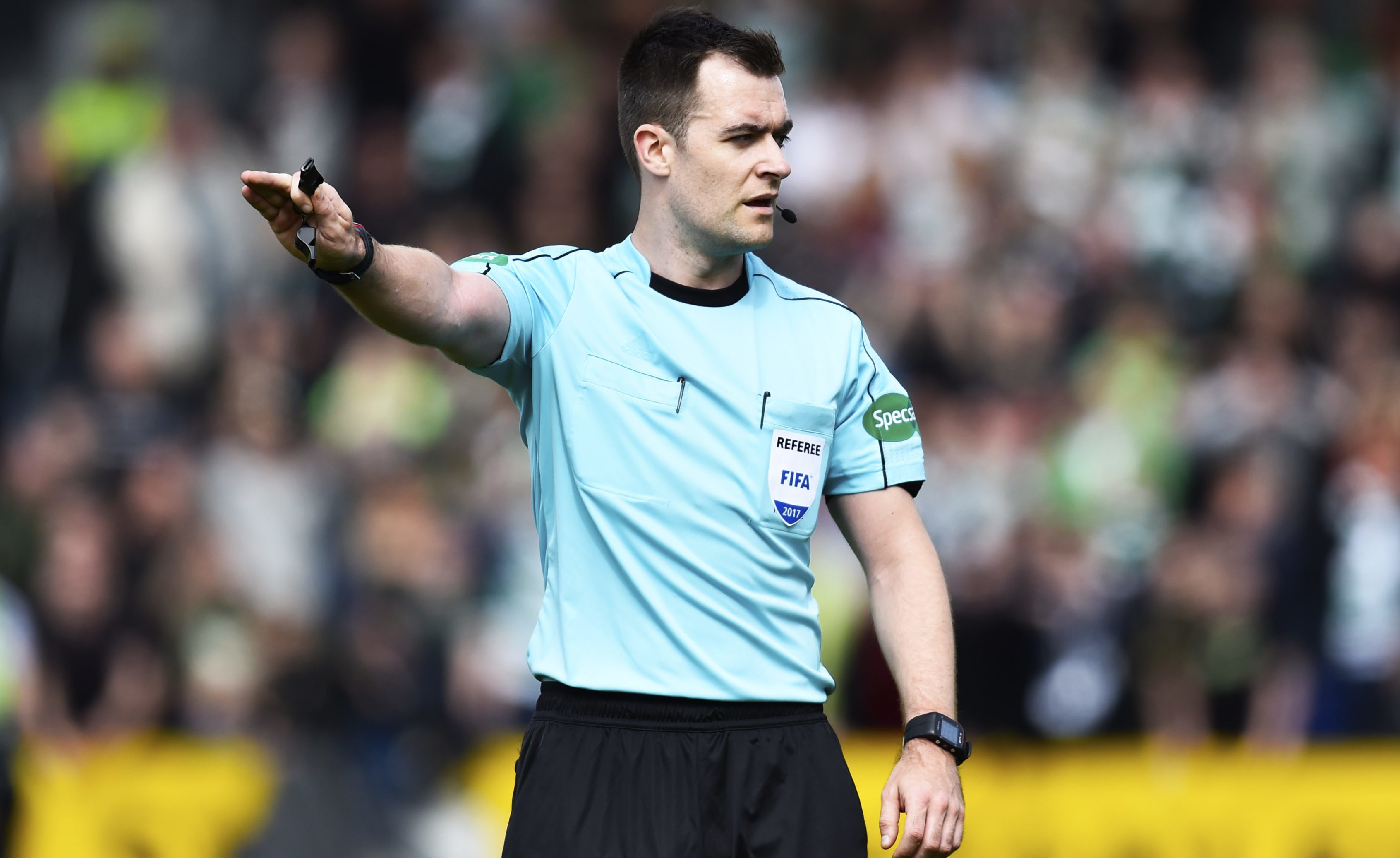
WHEN I was with the SFA back in 2009, I used to joke that referee recruitment should hold to the same principles as jury selection.
Anyone who applies to take charge of a game shouldn’t be allowed to do so because, by definition, there must be something wrong with them!
Eight years on, with television cameras analysing every moment of games from every angle, that holds even more true.
The situation for the men in black is, I believe, now a no-win one in terms of what is expected of them.
Referee the game well, and they won’t be noticed. Make a mistake, and it is liable to be a big issue.
Make a major mistake – such as we witnessed from Don Robertson in failing to catch the act of simulation which won Ross County a penalty against Celtic last Sunday – and they will be castigated.
Worse, angry fans will accuse them of following an agenda against an individual club (Celtic in last weekend’s example) or more outlandishly, of being part of some elaborate conspiracy.
Both suggestions are ridiculous.
No one is going to damage their own professional reputation – which is what Robertson did through his dreadful error – simply to temporarily disadvantage a team.
To suggest otherwise is to completely miss what motivates a group of intelligent people, who are often very successful in other walks of life.
For me, the standard of refereeing today is actually about the same as it was when I was playing, back in the 1970s and ’80s.
Yes, the officials have to deal with play which is quicker and more intense than it was back then.
The increased use of sports science has changed the game. I think everyone would accept that.
But by the same token, the officials themselves are quicker and more athletic than they used to be.
And there were the same mistakes being made then as are being made in the present day.
Don’t let anyone kid you otherwise.
The big difference is in television coverage of the game, and the opportunity for instant analysis it provides.
Award a penalty when no foul was committed and by the time a player steps up to take the spot-kick, millions will know all about it.
That’s a serious amount of pressure for referees to have to shoulder.
They need help and, in my opinion, the answer most definitely lies with the use of the video assistant.
Regular readers of this column will know I lobbied both FIFA and UEFA at committee level for the use of this technology back in 2009 when I was chief executive of the SFA.
Sadly, they wouldn’t have it and then, as now, I couldn’t understand why people would fail to see the benefits it would bring.
Football is a spectator sport and the audience demands to see sporting fairness.
If you don’t think that’s true, remember the furore when France conned the Republic of Ireland out of a place in the 2010 World Cup Finals.
Thierry Henry’s handball which won the game will forever hold a place in the game’s infamy.
It also remains a classic example of where television cameras could have helped right an injustice.
And the main argument against – that it would be unfair to hold the biggest teams to a higher degree of scrutiny than their smaller counterparts – doesn’t hold water.
Finance doesn’t allow for the provision of speed cameras on every street in the country.
But just because that is the case, does it mean should we not have them on our motorways?

Enjoy the convenience of having The Sunday Post delivered as a digital ePaper straight to your smartphone, tablet or computer.
Subscribe for only £5.49 a month and enjoy all the benefits of the printed paper as a digital replica.
Subscribe